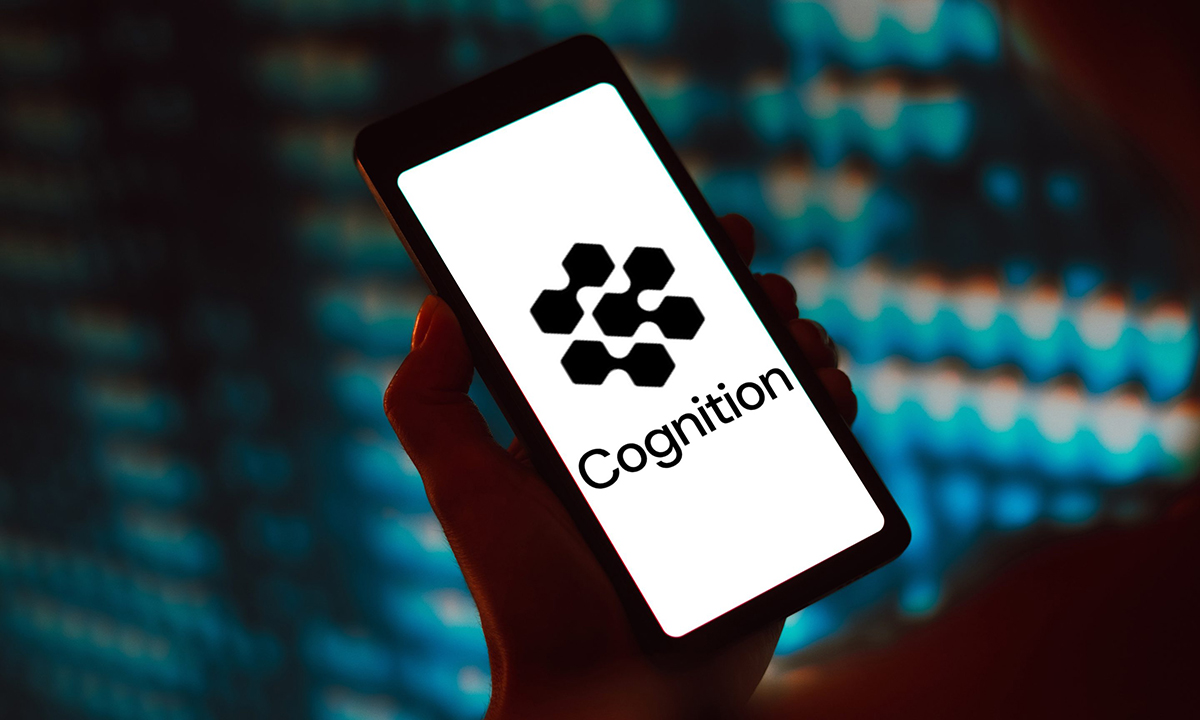
從長遠來看,人工智能毫無疑問會改變我們的世界。但迄今為止,市場可能正在經歷AI泡沫。
據《華爾街日報》上周六報道,想要證據的人可以看看Cognition Labs試圖獲得20億美元估值的新聞。
去年11月成立的Cognition Labs將其開發的Devin形容為“第一款完全自動化的AI軟件工程師”。該公司沒有實際收入。它在本月才發布Devin。
今年早些時候,該公司融資2,100萬美元,估值為3.5億美元。后來,它拒絕了對其估值10億美元的要約。現在,據《華爾街日報》報道,該公司正在與投資者談判一筆交易,希望能獲得高達20億美元的估值。
這個估值對于一家新成立的初創公司而言是一個龐大的數字。但在當前的人工智能領域,這并不足以令人感到非常震驚。幾周前,將谷歌(Google)作為競爭對手的人工智能搜索初創公司Perplexity進行了融資,估值為10億美元,投資者包括亞馬遜(Amazon)創始人杰夫·貝佐斯等,而在幾個月前其估值只有5.2億美元。一年多前剛剛成立的法國人工智能初創公司Mistral,去年12月估值為20億美元。
“每次泡沫都有一番引人入勝的敘述”
這些初創公司或許能夠充分證明它們的高估值是合理的。但隨著越來越多人工智能初創公司從廣撒網的投資者那里獲得了令人難以置信的大額投資,一些觀察者對行業內存在泡沫的感覺越來越強烈。
興業銀行(Société Générale)首席全球策略師阿爾伯特·愛德華茲就是其中的一位質疑者。
他本周在一份報告中寫道:“每次泡沫都有一番引人入勝的敘述。目前的敘述則集中在對人工智能驅動公司利潤激增的預期上,這將充分證明其當前的高估值是合理的。經歷過20世紀90年代末[科技]泡沫的人們,都聽說過這些論調,然后會不屑一顧地翻個白眼。”
在最近一期《All-In Podcast》播客中,風險投資者大衛·薩克斯表示,對于Devin,“許多公司正在圍繞自動化編程這種理念開發一些產品。”雖然他看好風險投資公司通過“人工智能代理優先的方法”生成新軟件項目,“我認為在現有代碼庫中運行人工智能,會變得更棘手、難度更大。”這也是其他AI初創公司正在應對的挑戰。
他補充道,Devin的一個優勢是,它的“演示會非常成功”。
當然,目前令投資者們眼前一亮的出色演示版本,未來是否會演變成蓬勃發展的公司,仍需要拭目以待。無論如何,這些未經驗證的初創公司獲得了令人瞠目的估值,這一定會被人們所銘記。(財富中文網)
翻譯:劉進龍
審校:汪皓
從長遠來看,人工智能毫無疑問會改變我們的世界。但迄今為止,市場可能正在經歷AI泡沫。
據《華爾街日報》上周六報道,想要證據的人可以看看Cognition Labs試圖獲得20億美元估值的新聞。
去年11月成立的Cognition Labs將其開發的Devin形容為“第一款完全自動化的AI軟件工程師”。該公司沒有實際收入。它在本月才發布Devin。
今年早些時候,該公司融資2,100萬美元,估值為3.5億美元。后來,它拒絕了對其估值10億美元的要約。現在,據《華爾街日報》報道,該公司正在與投資者談判一筆交易,希望能獲得高達20億美元的估值。
這個估值對于一家新成立的初創公司而言是一個龐大的數字。但在當前的人工智能領域,這并不足以令人感到非常震驚。幾周前,將谷歌(Google)作為競爭對手的人工智能搜索初創公司Perplexity進行了融資,估值為10億美元,投資者包括亞馬遜(Amazon)創始人杰夫·貝佐斯等,而在幾個月前其估值只有5.2億美元。一年多前剛剛成立的法國人工智能初創公司Mistral,去年12月估值為20億美元。
“每次泡沫都有一番引人入勝的敘述”
這些初創公司或許能夠充分證明它們的高估值是合理的。但隨著越來越多人工智能初創公司從廣撒網的投資者那里獲得了令人難以置信的大額投資,一些觀察者對行業內存在泡沫的感覺越來越強烈。
興業銀行(Société Générale)首席全球策略師阿爾伯特·愛德華茲就是其中的一位質疑者。
他本周在一份報告中寫道:“每次泡沫都有一番引人入勝的敘述。目前的敘述則集中在對人工智能驅動公司利潤激增的預期上,這將充分證明其當前的高估值是合理的。經歷過20世紀90年代末[科技]泡沫的人們,都聽說過這些論調,然后會不屑一顧地翻個白眼。”
在最近一期《All-In Podcast》播客中,風險投資者大衛·薩克斯表示,對于Devin,“許多公司正在圍繞自動化編程這種理念開發一些產品。”雖然他看好風險投資公司通過“人工智能代理優先的方法”生成新軟件項目,“我認為在現有代碼庫中運行人工智能,會變得更棘手、難度更大。”這也是其他AI初創公司正在應對的挑戰。
他補充道,Devin的一個優勢是,它的“演示會非常成功”。
當然,目前令投資者們眼前一亮的出色演示版本,未來是否會演變成蓬勃發展的公司,仍需要拭目以待。無論如何,這些未經驗證的初創公司獲得了令人瞠目的估值,這一定會被人們所銘記。(財富中文網)
翻譯:劉進龍
審校:汪皓
Artificial intelligence will no doubt change much about our world in the long run. But for now, we may be living through an AI bubble.
Those seeking evidence of this might cite news of Cognition Labs seeking a $2 billion valuation, as reported by the Wall Street Journal on Saturday.
Founded in November, Cognition Labs makes Devin, which it describes as the “first fully autonomous AI software engineer.” It’s generated no real revenue. It launched Devin this month.
Earlier this year, the startup raised $21 million in a deal valuing it at $350 million. It then turned down offers valuing it at $1 billion. Now, according to the Journal, it’s in talks with investors for a deal that would value it at up to $2 billion.
That’s a staggering figure for a new venture. But it’s not all that shocking in today’s AI space. Perplexity, an AI search startup challenging Google, secured funding a few weeks ago valuing it at $1 billion, up from $520 million a few months prior, with Amazon founder Jeff Bezos among the backers. Mistral, a French AI startup founded just over a year ago, hit a $2 billion valuation in December.
‘Every bubble has a compelling narrative’
Each of these startups might well justify their lofty valuations. But as more and more AI ventures snag improbably large sums from investors spreading their bets, the sense of a bubble increases among some observers.
Albert Edwards, chief global strategist at Société Générale, is among the skeptics.
“Every bubble has a compelling narrative,” he wrote in a note this week. “The current narrative centers on the anticipation of an AI-driven surge in corporate profits to fully justify the current stratospheric valuations. Those of us who lived through the late 1990s [tech] bubble have heard it all before and roll our eyes skyward.”
As for Devin, “a lot of companies are working on some variation of this idea,” venture capitalist David Sacks noted on a recent episode of the All-In Podcast. While he likes the venture’s “agent-first approach” for generating new software projects, “where I think this gets much trickier and is much more difficult is when you’re working in existing code bases,” a challenge other AI startups are addressing.
One advantage with Devin, he added, is that it’s “gonna demo really well.”
Whether cool demos that wow investors today translate into thriving companies years down the road, of course, remains to be seen. Either way, today’s eye-popping valuations for unproven startups will likely be remembered.






